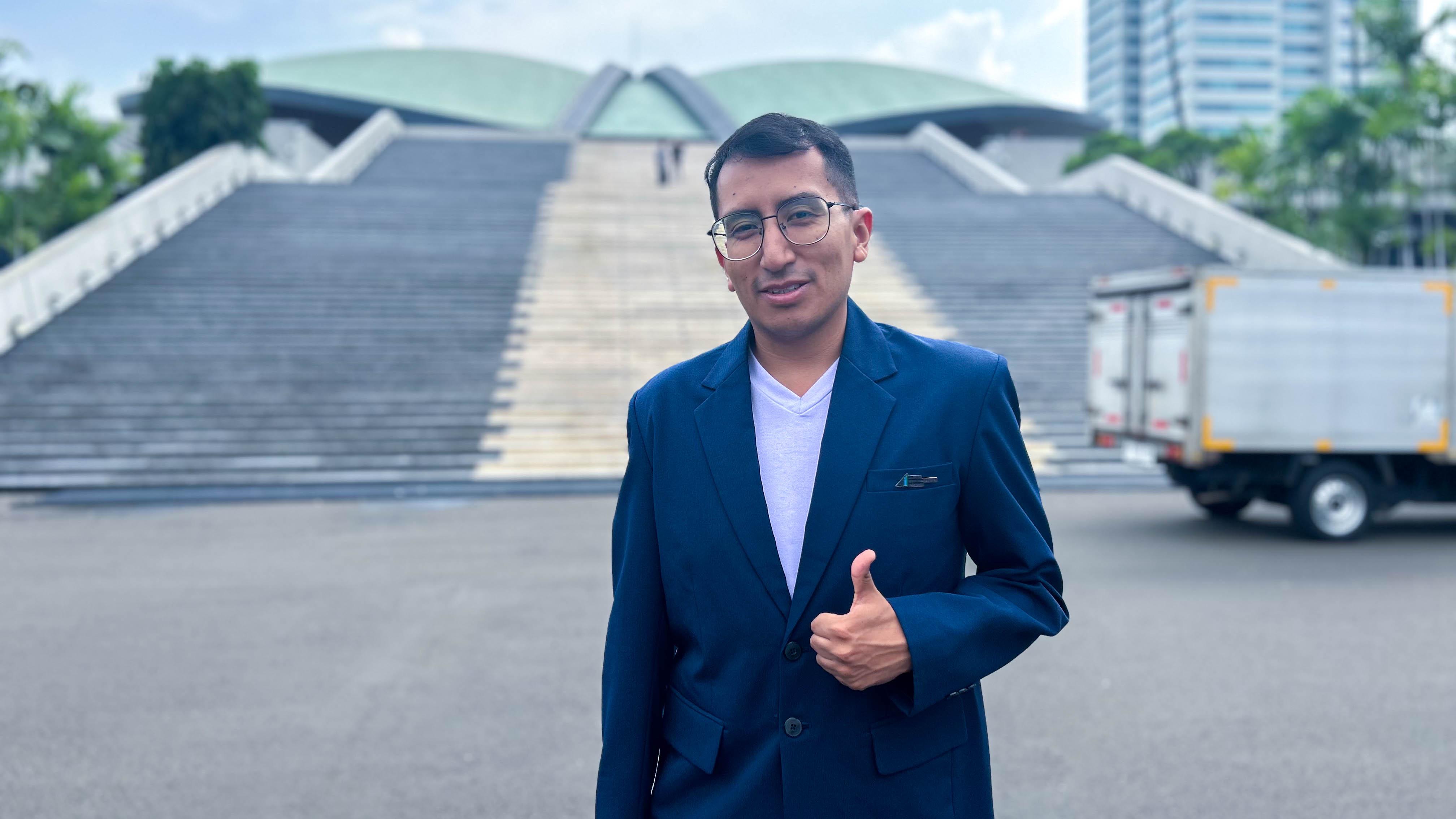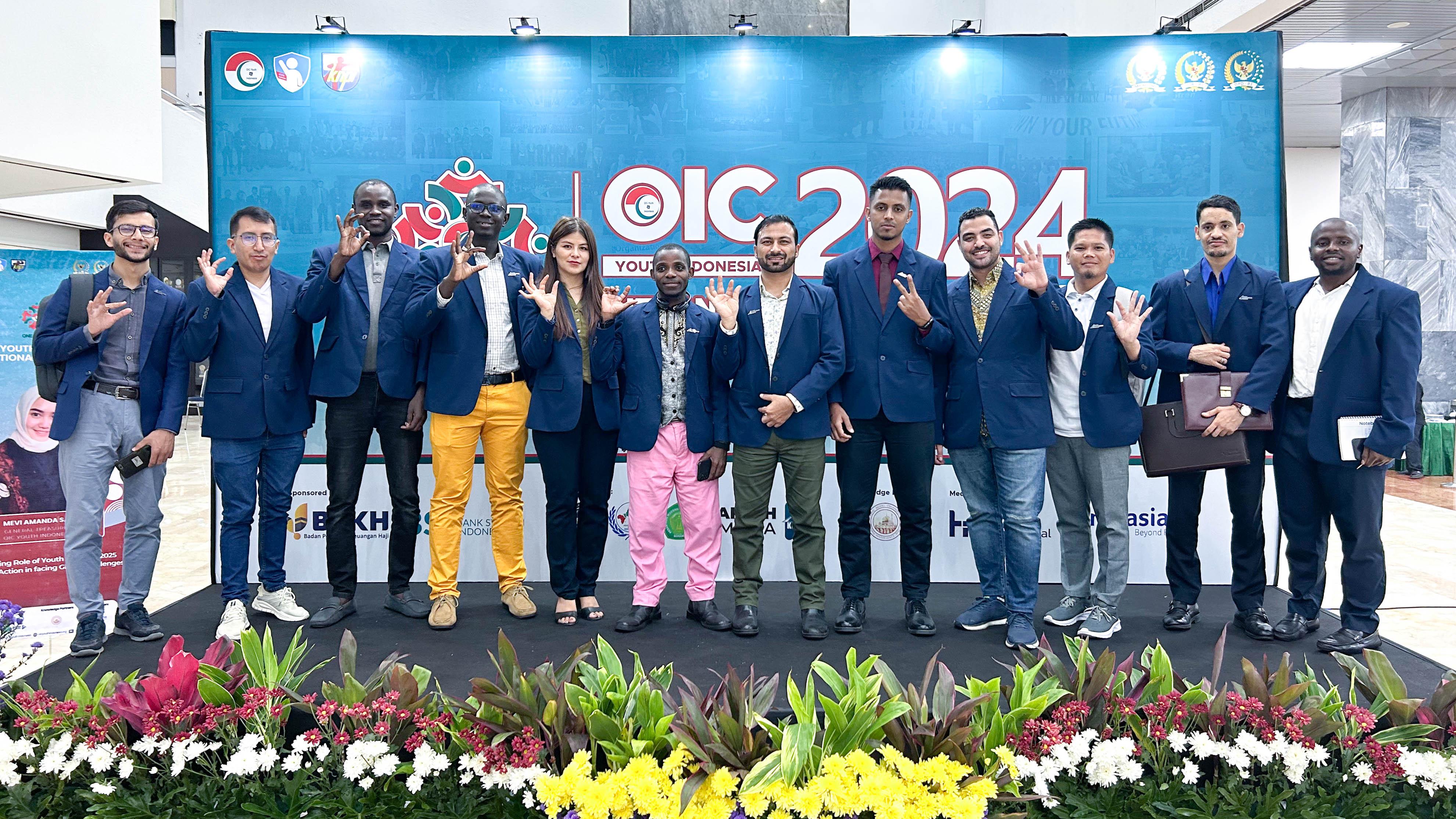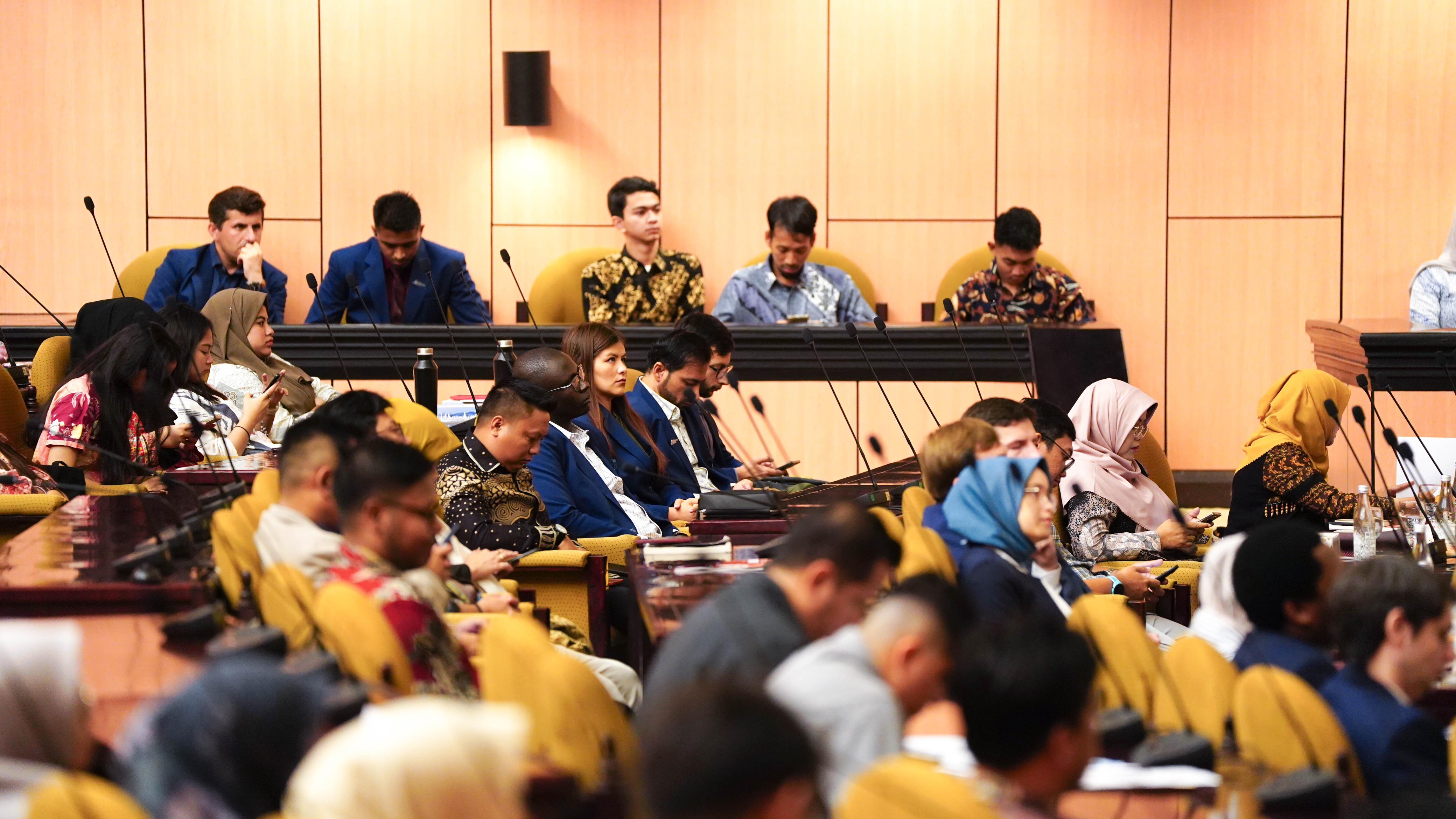Garuda and Eagle: A Mexican Student’s Reflection on State Symbols at Indonesia’s Parliament

It was a bright morning on September 24, 2024, when 17 students from Universitas Islam Internasional Indonesia (UIII), led by the International Office and Student Affairs, boarded a bus for a special visit to the Indonesian Parliament Office and House of Representatives (DPR-MPR RI) in Central Jakarta. They were attending the OIC International Youth Summit, an event organized by OIC Youth Indonesia.
Among the students was Alberto Emmanuel Conti Morales, a PhD candidate from Mexico studying at UIII’s Faculty of Education. For him, this was not just an opportunity to engage in critical discussions but also a journey through culture and symbols that stirred deep reflections on identity and nationhood."The place is very nice, appealing, and interesting. I never thought we would be in such a formal and important setting. I had expected something more informal, so I was pleasantly surprised," he shared, marveling at the grandeur of the building, as they arrived at Gedung Nusantara V of the parliament office.
Having visited the Mexican Parliament ten years prior, Alberto found himself comparing the two structures. "In Mexico, the parliament building is bigger, but this one feels more modern. Perhaps it's because a decade has passed since my last visit. But what really caught my attention was the difference in the atmosphere, the Indonesian parliament seems to reflect a deep sense of national pride."
Alberto was especially captivated by the Indonesian national symbols. As he sat in the parliament, his eyes were drawn to the imposing Garuda emblem, a reminder of Indonesia’s foundational values.
"In Mexico, we have a national seal too, an eagle with a snake. It’s very similar to Indonesia’s Garuda in terms of strength and symbolism. But in Indonesia, the Garuda represents more than just a national identity. It embodies the spirit of Pancasila, the philosophical foundation of the country. I found that deeply fascinating because it highlighted how much meaning Indonesians place on their symbols,” he said.

The summit Alberto visited was an annual summit held by OIC Youth Indonesia, an organization aimed at empowering and uniting young Indonesians under the values of the Organisation of Islamic Cooperation (OIC). It provides a platform for youth engagement on both national and international levels, promoting collaboration, leadership, and dialogue.
As the summit began, the room filled with the voices of youth leaders and speakers, all discussing the role of young people in shaping a post-OIC world. The conversation quickly turned to the importance of religion in civil society—a topic that resonated deeply with Alberto. As someone who hails from a country where religion is increasingly seen as a personal matter, he was struck by the Indonesian emphasis on faith as a core element of national unity and progress.

"The discussion was interesting, especially because of how central religion is to society here in Indonesia. In Mexico, religion is no longer a public matter; it has become something personal, something private. But here, it's clear that religion still plays a significant role in nation-building. It was eye-opening to see how much Indonesians rely on their faith in shaping their civil society," Alberto reflected.
For Alberto, the OIC International Youth Summit was more than just a political event—it was a mirror reflecting the values of a nation, a reminder of the power of symbols and faith in shaping identity. As he left the Indonesian parliament office with his fellow students, he carried with him not only the lessons from the summit but also a deeper appreciation for the cultural richness of his host country, Indonesia.